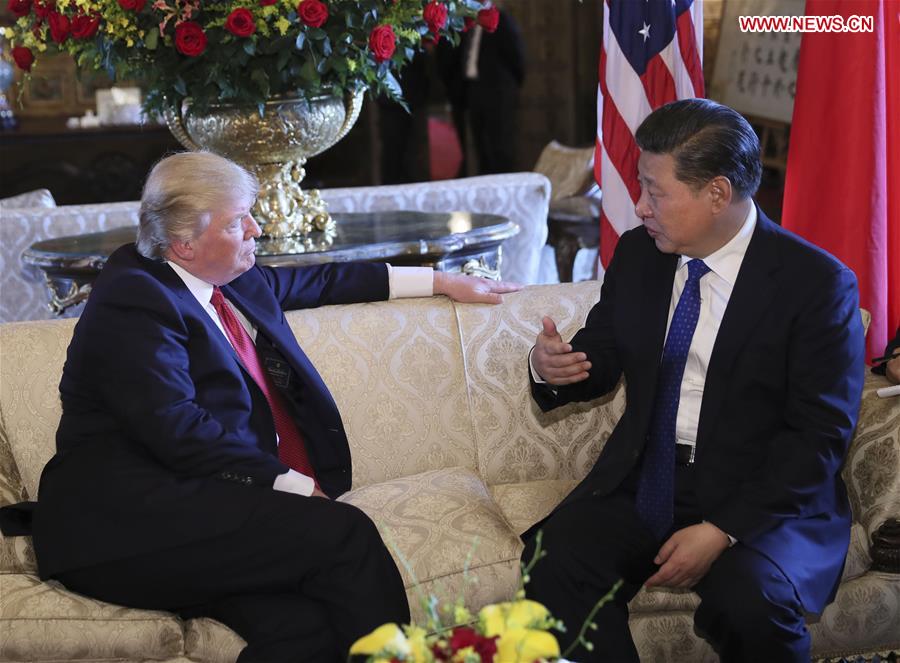
The relationship between China and the United States is entering a difficult period. It is widely known that the current tensions were not caused nor initiated by the Chinese side, but at such critical moments, China’s attitude and actions could play a key role in steering the development of China-U.S. relations into stability.
But China-U.S. relations have undergone tests and challenges that are just as difficult in the past.
In 1989, Western countries led by the U.S. imposed sanctions on
Compared with the circumstances in the 1950s or in 1989, the situation now is completely different. China has grown into a big power with global influence. Furthermore, China’s strategic resources and strategic space have improved fundamentally. It has resolved conflicts with the U.S. before.
From the imposition of sanctions on China in 1989 to the bombing of the Chinese embassy in Belgrade in 1999, to the midair collision of a Chinese jet fighter with a U.S. surveillance plane over the South China Sea in 2001, each and every one was initiated by the U.S. side while China suffered losses. In the process of actively seeking solutions to conflicts and disagreements, China managed to bear in mind the overall interests of bilateral relations and stayed tolerant, inclusive, and rational, and did its best to maintain stable relations with the U.S. This was widely recognized. Furthermore, when the U.S. encountered any difficulties, China was always ready to help. All this proves that China treasures its relations with the U.S.
During the ups and downs in bilateral relations, why has the U.S. always attempted to find fault with China? The reason is simple: China upholds the principles of equality and independence, and did not and will not follow the tune of the U.S. to appease it. From 1989 to the present, the U.S. has always tried to take advantage of the asymmetry between the two nations, believing it is superior and that China needs the U.S. more than it needs China. Its logic is: Do as required, otherwise it would raise the stick to punish China. The U.S. has never given due respect to China or treated China as an equal, and instead the U.S. has always considered China’s tolerance and concessions as opportunities to ask for more.
The cycle is: the faster China develops, the more the U.S. will demand, and the more unlikely China will give in. But such a cycle is now unlikely to continue.
First, a better understanding about China-U.S. relations, which has entered a new era, is needed. The U.S. may not be able to remain dominant forever, and China, while having no intention to replace it, simply wants to be more equitable and constructive, and that is a reasonable, legitimate, and natural demand. Whatever pressure the U.S. might try to exert, China will not change its belief in equality in relations with the U.S.
Second, there is no room for illusions in China-U.S. relations. It is characterized by competition as well as cooperation. Competition is unavoidable and growing. What the two nations need to do is to engage in healthy competition, that is, to grow stronger through competition, not attempt to weaken the other side.
China and the U.S. need to solve problems arising from the process of cooperation and competition. To cope with the problems, the two need to stress win-win cooperation. Now the U.S. challenges the procedures for win-win cooperation, arguing that even under a so-called win-win formula, it benefits much less than expected. China, on the other hand, strongly believes that the U.S.’ demands are very much overbearing and irrational. So consultation and negotiation are the only means to address the problems. As a matter of fact, trade between China and the U.S. is not a zero-sum game, but a real win-win process. It is true, however, even under win-win circumstances, there might also be disagreements. This is a new phenomenon in the new era of China-U.S. relations. What the two countries need to do is to address the winning shares, not to abandon win-win cooperation.
Third, China and the U.S. need to seek new strategic consensuses.
For the two nations, the best way to resolve strategic conflicts is to build consensus, that is, consensus that their common threats, in the long term, are bigger than the threats they pose to each other. China-U.S. relations, from normalization to establishment of diplomatic relations to continuing development, were built on mutual consensuses. Strategic consensus is the basis for strategic stability. In absence of such consensus, bilateral relations would plunge into tumult. The question is: Do the two still have such strategic consensus? Could they find or create such strategic consensus? By strategic consensus, it should not mean minor technical or specific field consensuses, but consensus that has direct bearing on mutual stability.
As for how China and the U.S. could identify their common threats, I firmly believe that the conventional and non-conventional issues such as development, environmental protection, and nuclear non-proliferation, which both countries have to face with, are the bigger challenges. The so-called threat they pose to each other is either contrived or fabricated, but their common challenges are real, long-term, and substantial.
And in this process, China has played, and can continue to play an active and constructive role.
